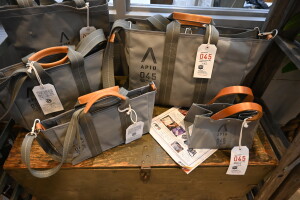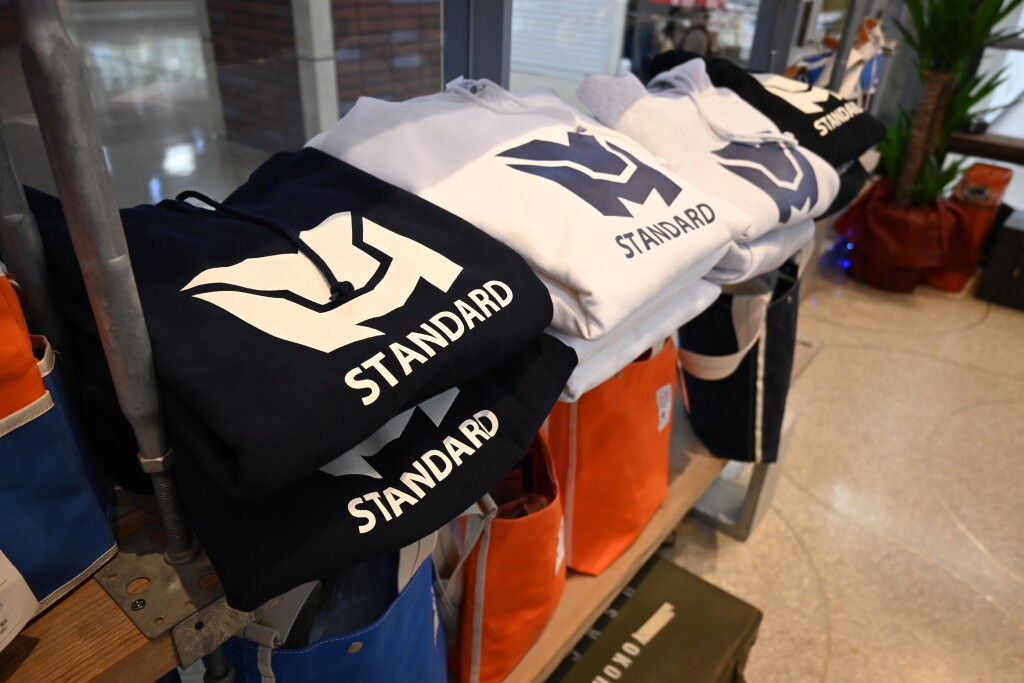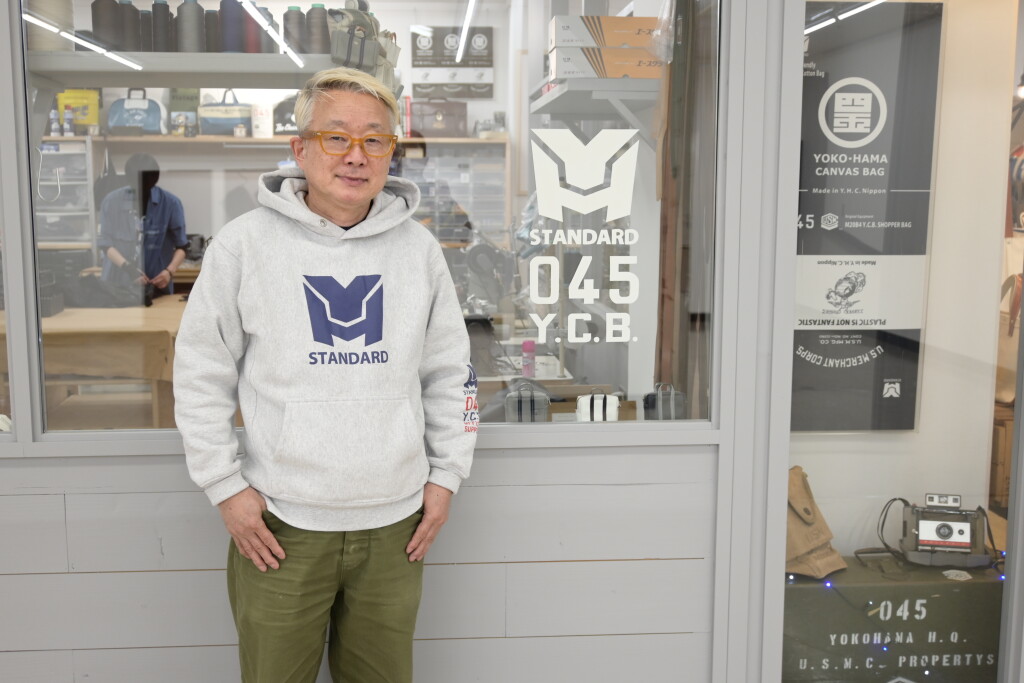Yokohama Canvas Bag stresses the concept of working together with local companies to source raw materials and proudly produces a brand that is uniquely Yokohama. All of the company’s products are made from fabric, fasteners, and other items solely supplied by Yokohama-based companies. This is all driven by the philosophy of company founder Yukio Suzuki.
Prior to opening his current company, Suzuki was a founding member of another company where he played a key role in the development of a variety of products. That one began with just a few employees, but they built it into a business 200 strong with annual sales of over ¥6 billion. At the age of 50 Suzuki decided to leave the company and put his experience to work as a consultant. But as the days went by in that role, he found the work to be unfulfilling. Speaking of this time, he tells us, “I’ve always been someone with a passion for making things. Not even a year had passed since I left my former job, but I found myself yearning to return to that type of work. I started to ponder the creation of products that could represent Yokohama.”

What stands out the most is the material his bags are made from. The general consumer’s image of canvas is that of a durable, cotton-based product. But there is more to Yokohama Canvas Bag than simply that. Its main supplier is Morino Hanpu Sengu–a manufacturer of items for ships, such as sails, rope, and cables in Kamome-cho, Naka-ku. The company produces sails for the Japan Maritime Self-Defense Force using vinylon, a synthetic fiber stronger than nylon. Vinylon is a particularly sturdy material that is also waterproof. Suzuki thought it to be the perfect material to use in the making of outdoor items. At first Morino wasn’t confident that Suzuki’s idea to make bags from its material was viable, but his enthusiasm slowly won the company over. For the sake of building a Yokohama brand, they were willing to do business with him.
Due to vinylon’s ruggedness, it’s actually a difficult product to use in fabrication. But applying his skill and experience, through trial and error, Suzuki was able to successfully develop a manufacturing process. At the company’s new location in the Silk Center, the production area is glass-enclosed, so you can watch the entire process. Beyond simple earth tones, the bags come in a range of colors meant to represent the sights of a port city–the sea, blue skies, ocean sunsets. The vivid colors are intended to brighten your day and surely there is a style to match any generation’s taste.
 About a third of the products produced at Yokohama Canvas Bag are collaborations with apparel and outdoor companies. The company shop is lined with a variety of these original creations. One such collaboration was with custom auto parts maker Apio, which specializes in parts for the Suzuki Jimny. A large bag was specifically designed to fit perfectly in the Jimny’s luggage area. As the design maximized usage of space, fans of the car soon became fans of this product.
About a third of the products produced at Yokohama Canvas Bag are collaborations with apparel and outdoor companies. The company shop is lined with a variety of these original creations. One such collaboration was with custom auto parts maker Apio, which specializes in parts for the Suzuki Jimny. A large bag was specifically designed to fit perfectly in the Jimny’s luggage area. As the design maximized usage of space, fans of the car soon became fans of this product.
If Suzuki’s life before he started his own company at the age of 50 is considered phase one, now he is in the second phase. But according to Suzuki, we can expect a third phase, so stay tuned. “It’s still a secret, but the best place to do it is in Hawaii,” he divulges with a grin. Whatever his future may hold, we expect he will make it a success. Natural born creators like Suzuki are capable of reinventing themselves and always finding joy in what they do.


